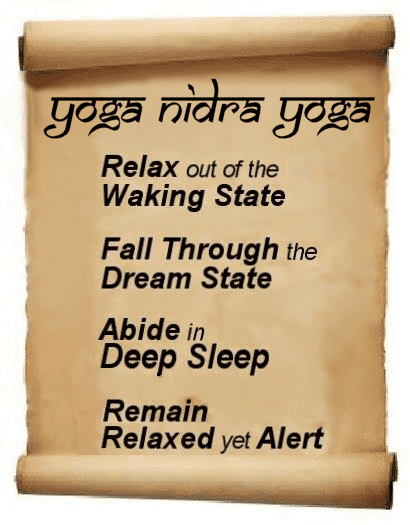7 Stages of Awakening Spiritually via Yoga with James Traverse

Are you feeling a deep longing in your heart to tap into your spiritual side? Yoga Nidra Yoga is an incredibly powerful tool for personal growth and to awaken spiritually. In this article, we’ll explore the practice of Yoga Nidra for awakening spiritually and how yoga can help you with spiritual training and the challenges that arise along the journey.
Yoga Nidra Yoga, also known as Sleep Yoga [Nidra means Sleep] is a powerful means of awakening to your true nature, spiritual awareness.
Nidra Yoga is the ancient yoga practice of deep relaxation and meditation used to restore balance and inner peace. It is both a meditation practice and a meditative state. It has been practised for thousands of years and has been known to reduce stress, promote restful sleep, and increase feelings of well-being. It is a powerful tool to help manage anxiety and depression, as well as to facilitate personal growth and transformation.
The practice of Sleep Yoga can help you to relax deeply, to quiet the mind, and to bring a feeling of peace and balance to the body, mind, and spirit. During a session of Yogic Sleep, you relax yet remain alert, which means that your body will be in a state of conscious relaxation while your mind will be gently guided through various spiritual stages of awareness on your journey to full spiritual awakening.
An unusual feature of Yoga Nidra practice is that although it is actually the Yoga of Sleep, you do not truly sleep, instead the ultimate aim of this yoga approach is to wake up to the true nature of your being.
Additionally, the use of visualization and affirmations gives you access to the subconscious, which allows you to heal and make positive changes in your life at the causal level of being.

Yoga Nidra can help to reduce stress, improve sleep, and increase feelings of well-being. By reducing stress, you can improve your overall health, as well as your ability to cope with difficult situations. Improved sleep can help to reduce fatigue, improve concentration, and increase energy levels. And increased feelings of well-being can improve your outlook on life and help to reduce feelings of depression and anxiety.
The visualization of Nidra Yoga can also help to reduce physical pain, such as back pain, neck pain, and headaches. It can also help to reduce chronic pain and improve mobility, flexibility, and range of motion. In addition, Sleep Yoga can be used as a tool to access your inner wisdom and help to manifest your dreams and desires.
Overall, Yoga Nidra can be a powerful tool to help you awaken spiritually and plus restore balance and inner peace, reduce stress, improve sleep, and increase feelings of well-being. With regular practice, you can experience greater relaxation, improved health, and a deeper connection to all life via awakening spiritually.
Why Practice Yoga Nidra Yoga for Spiritual Awakening?
One of the most important benefits of the practice of Nidra Yoga is that it lets you see for yourself that the Ground of all Doing is Being.
The other tremendous benefit is to see that this yoga approach is not the absence of experience; instead, it is seen to be the experience of absence, which is truly the awareness of spirit.
Foreground and Background in the light of Awakening Spiritually and the practice of Sleep Yoga.
Ultimately there is no separation as foreground and background, yet in order to be able to speak of these things they are objectified with such labels. Terms like Existence, Truth, Source, Love, Being Awareness, Consciousness are different names for the same thing.
In this post the background is referred to primarily as Source and the foreground is the expression of Source, or [how it appears, is Self.
Source is One. It expresses itself through the medium of breathing, whereby life unfolds as countless forms.
Source expresses itself as functioning. The expression of Source is breathed as a wave, Self. In this way, Source generates all form and forms also breathe and function like it.
The invocation of the Isha Upanishad says:
- That [invisible background, Source] is a complete whole. Source itself is formless.
- This [visible foreground, Self] too is a complete whole.
- What comes out of the whole, Self, is also whole; it is the same as its Source.
- From the complete whole [background, Source] only, the complete whole [foreground, Self] arose.
Source itself is formless, yet it expresses itself in form. Your Self, which is a complete whole, arose out of and as Source’s expression, its functioning.
The invocation continues:
- Even after removing the complete whole [foreground, Self] from the complete whole [background, Source], still the complete whole [background, Source] remains unaltered and undisturbed.
It is the nature of Source to be conscious, aware, this is its functioning, its seeing is its doing. [Awareness is the functioning trait of Source]. Even though Self arose and came out of Source as Awareness, the background as Source itself is like a flame that is not diminished or altered in any way by lighting another.
I am That – the Foreground, Self is the Background, Source, yet…
Self has the same attributes as Source, yet the form, the idea, of Self is not identical to Source, because Source itself is not an idea, and it does not have form.
Since Self has the same attributes and is the expression of Source, it follows that Awareness, which is an attribute of Source, is also an attribute of Self.
Attention is the conduit of Awareness.
Awareness is the spacious attribute of Source. Self, which is the expression of Source, is limited and localized. This limited, localized form is the attending attribute of Source’s functioning; it is what arises and comes out of it.
Source functions by expressing itself in form through and as fourfold waves of Being [Self] that:
- Arise out of its formlessness,
- Exist in form for some time,
- Decay,
- Fall back into the Source they came out of.
These Waves of Being have the same attributes as their Source.

Summary
Spiritual awakening is a term that is used to describe a wide range of experiences that people may have as they seek to grow spiritually or to connect with their inner selves on a deeper level. It can involve a wide range of experiences, including profound changes in perspective, a sense of inner peace or clarity, and a feeling of connection with something unlimited and profoundly more intelligent than oneself. It is experienced as another way of knowing that is associated with insight and intuition, and it is the skilful action that is appropriate to the moment such that there is nothing lacking and no residue.
Being healthy in spirit refers to the overall well-being of a person’s spirit or soul, and it is often seen as an important aspect of overall health and well-being. Spiritual health is not necessarily tied to any particular religion or belief system, and it can be cultivated through a variety of practices and experiences, yet it is an essential element to give attention to along the journey of waking up to the true nature of one’s being.
Some people may awaken to the true nature of their being as a result of participating in spiritual practices or rituals, such as meditation, prayer, or yoga. Others may awaken as a result of a personal crisis or life-changing event, such as the loss of a loved one or a major illness. Some people may also experience the true nature of their being gradually over time through a process of self-exploration and self-discovery. In all cases, the experience of awakening to the true nature of one’s being is a life-changing event or process in which a new way of being unfolds that embraces truth, love and beauty.
There is no one way to describe the process of awakening spiritually, as it is a highly personal and individual experience. Some common themes are:
- A sense of unity with the universe; with all creation
- A feeling of inner peace, clarity and contentment
- A sense of oneness with a higher power or divine intelligence
- A feeling of connection/union with something much larger than oneself, something sacred
- A sense of deeper purpose and meaning in life
- A feeling of compassion, love and understanding towards others
- A sense of wonder and awe at the beauty and complexity of the world.
- A feeling of being more attuned to your own feelings and emotions
- A feeling of being more in tune with your own values and beliefs
- A feeling of being more connected to the world around you, able to see beauty and goodness and god-ness
It is important to understand that awakening spiritually is not necessarily the same thing as religious conversion, and people of all religions and belief systems can experience an awakening spiritually. It is also important to note that the journey of waking up to one’s true nature is not always a positive or pleasant experience, and some people may find it challenging or difficult as they navigate the changes and shifts that come with it. However, for many many people, the process of waking up to their true nature can be deeply enriching and transformative, leading to a greater sense of meaning and purpose in life.

Yoga and Yogic Sleep
Yoga is a spiritual practice that originated in ancient India and is focused on the cultivation of physical and mental well-being through various physical poses (asanas), breathing techniques (pranayama), meditation, and yogic sleep. Many people practice yoga as a means of achieving physical fitness and stress reduction, and it is also be a powerful tool for spiritual awakening and personal growth.
One of the key principles of yoga is the idea of “union” or “yoking,” which refers to the idea of integrating the body, mind, and spirit in order to achieve a sense of balance and harmony. Through the practice of yoga, people can learn to quiet the mind and become more present in the moment, which can help to cultivate a sense of inner peace and awareness.
Yoga can also be a form of spiritual practice in its own right, as it can involve yogic sleep, the repetition of mantras, the focus on specific deities or symbols, and the cultivation of devotion and surrender to a higher power. Many people find that the physical and mental discipline of yoga helps to create the conditions for spiritual awakening and growth, as it can help to clear the mind and open the heart to deeper levels of self-awareness and understanding.
Yoga nidra, also known as “yogic sleep,” is a type of relaxation and meditation technique that involves lying down in a comfortable position and guiding the mind through a series of mental images and body sensations that ultimately flowers as access to another way of knowing. The practice is often described as a state of deep relaxation and inner awareness, and it is believed to have a number of benefits for physical and mental health.
Oddly, although it is often called yogic sleep, it is one of the most powerful ways of waking up to the true nature of one’s being.
In a typical yoga nidra session, the practitioner will lie down in a comfortable position and be guided through a series of mental images and body sensations. The goal is to focus the mind on these images and sensations and let go of any thoughts or distractions that may arise. The practice is typically done with the guidance of a teacher or audio recording, and it can last anywhere from 20 minutes to an hour.
Some of the potential benefits of yogic sleep include:
- Deep relaxation and stress reduction
- Access another way of knowing
- Improved sleep
- Gain insight into the true nature of being
- Improved focus and concentration
- Increased self-awareness and mindfulness
- Improved physical and mental well-being
It is important to note that yoga nidra is not a substitute for medical treatment, and it should not be used as a replacement for seeking medical care if needed. However, it can be a helpful addition to a holistic approach to health and well-being, and it can be an effective way to relax and de-stress in the midst of a busy or stressful life.
Yoga and yogic sleep can be effective tools for spiritual awakening and personal growth, but it is important to find a style and teacher that resonates with your own values and beliefs. It can also be helpful to approach the practice with an open mind and a willingness to be present and receptive to the teachings and experiences that come your way.
Overall, the process of awakening to the true nature of one’s being is a deeply transformative experience that can have a profound impact on a person’s life and sense of self. It is often described as a state of being that is beyond words and can only be fully understood through personal experience.


The 7 Stages of Spiritual Awakening Now
The Journey of Sprirtual Awakening through 7 Stages – https://beingyoga.com/the-journey-of-sprirtual-awakening-through-7-stages/
Pingback: Spiritual Awakening Stages and Yoga Nidra
Pingback: Science and Spirituality regarding Spiritual Awakening Meditation
Pingback: Self-Love, Self-Knowledge and Spiritual Awakening